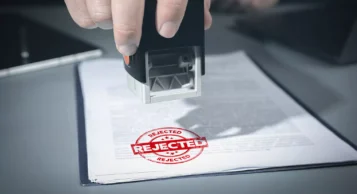
What Are Transferable Skills, and How Do They Impact My Social Security Disability Claim?
Getting Social Security Disability benefits means proving that you can’t work.
Which means proving that your health problems prevent you from working any of your past jobs—or any new job, either.
Because of this, when you apply for disability benefits, Social Security will look at your transferable skills.
How does this affect your chances of winning monthly checks, access to Medicare, and a sense of relief that comes from receiving disability benefits?
As a Wisconsin Social Security Disability lawyer (serving people in Green Bay, Appleton, across the Fox Valley and throughout Northeast Wisconsin), I would look at your training, job experience, skills you picked up on the job and whether you could use those skills in a less strenuous job.
To get an idea of your specific situation, talk to my Wisconsin disability law firm, Geary Disability Law, for a free consultation on your case.
And read below for a better understanding of what transferrable skills mean to a Social Security Disability application.
Example of Transferrable Skills
When you have past work experience at a semi-skilled or skilled level, it’s possible that you acquired skills in those jobs that can be transferred to less demanding types of work.
If that’s the case, Social Security may decide that even though your medical conditions require you to stop doing your past work, your health is still strong enough that you could work in a different job—so they deny your benefits.
A perfect example of this concept can be found in the field of nursing.
Floor nurses are generally expected to lift significant amounts of weight during their hospital shifts, primarily moving people on or off hospital beds, examination tables or diagnostic machines.
For Social Security’s occupational guidelines, these positions are likely to be classified as medium level in terms of exertion (lifting up to 50 pounds), although many nurses have to lift much more.
Let’s say a 55-year-old floor nurse who has been required to lift 50-plus pounds in their job developed a health impairment and is now unable to perform their past work. For financial stability, they seek Social Security Disability benefits.
A transferable skills analysis for their disability claim will center on skills they obtained during their past work.
The challenge for a disability benefits application for a registered nurse (RN) is that they almost certainly learned skills in their work that can be transferred to other nursing positions classified as light duty, ones that may still involve patient care or administration of their department, but don’t require heavy lifting.
But age makes a difference, too, as I’ll explain next.
Social Security Grid Rules & Transferable Skills
In my last post I discussed the “grid” rules for Social Security Disability cases and how they make it easier for people over 50 to win benefits.
As people get older, Social Security reasons, they are less likely to be able to shift to different jobs with different skills.
Transferable skills, however, complicate matters.
In the case of nurses, a person trained and working as an RN is far more likely to have acquired more advanced transferable skills than a person trained and working as a certified nursing assistant (CNA).
For an RN, they almost certainly learned skills in their work that can be transferred to nursing positions classified as light duty.
So it is possible that the 55-year-old RN who worked as a floor nurse at the medium level will be found not to qualify for disability benefits due to transferable skills, whereas a 55-year-old CNA working as a floor nurse with the same physical limitations will be found to have a disability that rules out further work.
Working as a floor nurse as a CNA certainly isn’t unskilled work, but the job may involve fewer skills obtained during the course of work that transfer to lighter duty work.
Skills, for the purpose of this conversation, are defined by Social Security as, “Knowledge of a work activity which requires the exercise of significant judgment that goes beyond the carrying out of simple job duties and is acquired through performance of an occupation which is above the unskilled level (requires more than 30 days to learn). It is practical and familiar knowledge of the principles and processes of an art, science or trade, combined with the ability to apply them in practice in a proper and approved manner. This includes activities like making precise measurements, reading blueprints, and setting up and operating complex machinery. A skill gives a person a special advantage over unskilled workers in the labor market.” SSR-82-41 (2)(a).
It’s great to have an advantage in the labor market, but it can make it harder if you’re trying to get Social Security Disability benefits—and the rule is that you must be unable to work any substantial amount at all, in any job.
Social Security Disability Applications, Transferable Skills Analysis & the Process
A transferable skills analysis is an extremely important aspect of the preparation for your disability case.
Your claim can involve getting a rating of what Social Security calls your “residual functional capacity,” or RFC, which is the level of activity and physical work you can handle despite your health limitations. Combined with the skills required for a job, your RFC helps decide whether you are awarded benefits.
As you go through the disability claims process, you could also have a vocational expert testify at your disability hearing about whether any other jobs exist that you could do, considering your health problems and your skills.
Transferable skills are an issue I closely examine for disability cases that I handle. It’s important to discuss when you prepare for a disability hearing at your prehearing conference with your disability attorney.
An experienced Social Security Disability lawyer will know how Social Security views different jobs and different health problems, and how to present your case in a way that gives you the best chance at life-changing benefits.
To find a skilled disability lawyer in Wisconsin, contact us at Geary Disability Law.
Written by Tim Geary.
Disclaimer: Blog entries are not intended to be a substitute for actual legal advice. It is important for a representative to understand the specific facts and circumstances of your case before they can provide you actual legal advice. If you have questions about your Social Security Disability benefits, please contact a qualified representative to discuss your case.
Related Posts

Social Security Disability Hearing Office Closes in Northeast Wisconsin
Early in 2025, Social Security decided to close the disability benefits hearing office in Oshkosh....
Read more
Signs You Will Be Approved for Disability in WI: Do You Have a Strong Case?
When you’re hurt or sick, can’t work and need financial help, you’re on an emotional roller...
Read more
Can I Reopen a Past Social Security Disability Denial in Wisconsin?
People get denied for Security Disability benefits all the time. And very often, they just drop it....
Read more



